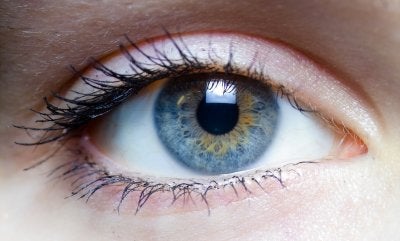-
The Connection Between Eye Pressure and Open-Angle Glaucoma
The Connection Between Eye Pressure and Open-Angle Glaucoma
Healthy eye pressure requires the constant release of aqueous humor through the trabecular meshwork. If your eye doctor in Chicago is concerned that you may have glaucoma, one factor he or she will consider to make a diagnosis is your eye pressure. This video explains more.Your eyes constantly produce and release aqueous humor. When this doesn’t happen, pressure in your eye will build up and damage may occur to the optic nerve fibers. If your eye doctor discovers this kind of damage in your eye, you may be diagnosed with open-angle glaucoma. Regular exams can let your eye doctor catch this buildup in pressure and prescribe the appropriate eye care to protect your vision.
-
Glaucoma 101
Glaucoma 101
Glaucoma is one of the most common causes of blindness in the world. Although there is no cure for glaucoma, when it is diagnosed and treated early, eye doctors can often slow or prevent its progression so that it doesn’t cost people their vision. January is Glaucoma Awareness Month, a time to increase public awareness about this common and serious eye condition. Making an appointment for eye care in Chicago is a good way to participate in Glaucoma Awareness Month and to learn more about your personal risk of the disease. These facts will also arm you with the important information you need to protect your eyesight.
Glaucoma is caused by damage to the optic nerve.
Glaucoma refers to multiple diseases that are associated with optic nerve damage. Open-angle glaucoma is the most common form of this condition, and occurs when the fluid in the eye is not able to drain properly, causing an increase in pressure. This increase in eye pressure causes damage to the optic nerve. However, glaucoma can occur for other reasons, as well. High blood pressure can damage the optic nerve, and glaucoma can also occur without an increase in pressure in the eyes, as is the case with low-tension glaucoma.
Glaucoma doesn’t cause symptoms in its early stages.
Most people who have glaucoma do not experience any symptoms as the disease develops. Eventually, people may experience a loss of peripheral vision as the first symptom that something is wrong. Once glaucoma has reached this stage, the vision loss that has occurred is permanent. Seeing an eye doctor regularly is the only way to know you have glaucoma before permanent vision loss occurs.
Early treatment may prevent vision loss.
Although glaucoma can cause blindness, it doesn’t have to rob you of your vision. From medicated eye drops to eye surgery, your doctor can provide several treatments that could slow the progression of the disease before you experience vision loss. Because lost vision cannot be restored, an early diagnosis is essential for protecting your eyes. Your eye doctor can recommend how often you should have eye exams, based on your age, risk factors, and current health.
-
Keeping Your Eyes Healthy as You Age
Keeping Your Eyes Healthy as You Age

Everyone would like to preserve their vision as much as possible as they age, but what steps can you take to do that? The good news is most of the things you can do are actually fairly simple! Try to keep these things in mind, and you’ll be well on your way to healthier eyes as you get older. Read on for some tips from Gerstein Eye Institute for healthy eyes at any age.
- Wear sunglasses. Simply put, if you’re outdoors, put on some shades! Also, make sure the sunglasses you pick out block 100% of both UVA and UVB rays. This should be listed somewhere on the tag or label. For the very best protection, get a pair that has good side coverage, as well as top and bottom. Talk to a professional vision team about the right pair for your needs. (Wearing a hat can also be helpful!)
- Don’t smoke. Smoking has a big impact on the eyes, contributing to conditions such as cataracts and macular degeneration. If you smoke, quitting will help improve the health of your eyes in the long term. It’s never too late!
- Combat computer use. Screen time is on the rise and it’s taking a toll on vision. Be sure you are doing what you can to minimize the impact it has on your eye health. Simple things such as looking away from the screen frequently, avoiding screen glare, and positioning the computer properly can help. Inquire about computer glasses if you spend a lot of time online.
- Use protective eyewear. Whether you play racquetball or have taken up welding, you’ll want to consider using eyewear that will serve as a barrier between you and anything that might damage your eyes. Safety glasses can’t be overestimated in terms of their help in preventing a serious accident.
- Get regular eye examinations. Regular eye exams are the best line of defense against long-term eye issues. Visit an experienced ophthalmologist to make sure your eyes are healthy and your vision is good. Eye exams can help catch any issues early when they are most easily treated.
Contact our Chicago office today to schedule an appointment for your checkup, or to get more information about protecting your eyes as you age.
Protect your eyes. Visit Gerstein Eye Institute today!
-
10 Foods for Healthy Eyes
10 Foods for Healthy Eyes
Do you know what foods are healthy for your eyes?

Chances are most of us have heard the sage old advice about eating carrots, but what other foods can you add to your diet to help support good vision? Here, your friends at Gerstein Eye Institute in Chicago have compiled a list of 10 eye-healthy foods for you to consider.
Fish is high in omega-3 fatty acids, so it makes a good main dish addition to your diet if you’re concerned about healthy eyes. The fatty acids help protect you against things such as macular degeneration, dry eyes, and even cataracts. Try a nice piece of grilled salmon or a tuna sandwich for lunch.
Kale is all the rage these days, and it’s no exception when it comes to eye health. This dark, leafy green is loaded with lutein and zeaxanthin — antioxidants that work to keep your eyes functioning at their best. Add it to a sandwich instead of lettuce, or toss some in a salad alongside other greens.
Spinach is another highly recommended veggie for healthy eyes, and it’s easy to include in the diet, as well. Steam some and add to an omelet, or make a spinach and strawberry salad for an extra boost of vitamin C.
Berries are a good pick for their antioxidant value, and they are easy to add to a variety of different dishes. Sprinkle some raspberries on cereal, pack a small container of blueberries for a midday snack, or enjoy some strawberries dipped in a little dab of sour cream and brown sugar for dessert.
Nuts can be a smart addition to your eye health diet — just choose ones that are high in vitamin E, such as almonds or hazelnuts. Nuts make great snacks, but they are high in calories, so just go easy!
Sunflower seeds are another good source of vitamin E. Sprinkle some on a salad for a tasty crunch that supports eye health.
Broccoli not only has lutein and zeaxanthin, but it’s also a great source of vitamins C, A, and E. Lightly steam some and add to pasta, or toss into a chicken stir fry. You can even eat it raw in a salad!
Eggs are extremely versatile and are another terrific food for your eyes. They contain zinc, vitamin A, lutein, and zeaxanthin, all of which have protective effects. Enjoy them scrambled for breakfast or hardboiled for lunch or a snack.
Oranges are stocked with vitamin C, so they make a great choice for a diet focused on eye health. Drinking orange juice is an easy way to add this fruit, but you can also toss an orange in your lunchbox to peel and eat, or put it in a fruit salad.
Carrots ! It’s true — this veggie is great for your eyes, just like you’ve heard all along, packed with a lot of vitamin A and beta carotene. Carrots are easy to eat on the go, but you can also include them in salads or blend them into soups.
Looking to add some eye-healthy recipes to your diet? Talk to Gerstein Eye Institute to learn more about how eating healthy can help your vision when you visit. We’ve got some great information to share!
Call us today for healthy eyes: (773) 596-9804!
